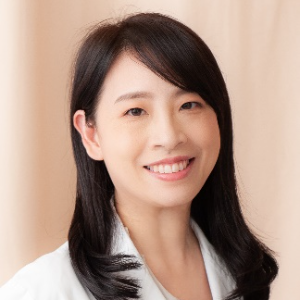Title : Acupuncture in the treatment of perimenopausal insomnia: A literature review
Abstract:
Background: Sleep disturbances are reported by 40–60 % of perimenopausal women. The established association between fluctuating hormonal milieu and sleep is one explanation for the development of insomnia during perimenopause. The endocrine system is considered one of the principal intrinsic factors affecting women’s sleep during their reproductive life span. As estrogen is involved in the regulation and stabilization of the circadian rhythm system, its physiological fluctuation, as well as a decreased sensitivity to estrogens in the hypothalamus during perimenopause, contributes to circadian rhythm disturbances and possibly the subsequent development of PMI. Western medical treatment modalities encompass both non-pharmacological and pharmacological interventions. Pharmacological therapies can be further categorized into hormonal and non-hormonal therapies. Prolonged administration of hormonal therapies and hypnotic agents is associated with an increased incidence of adverse effects, including an elevated risk of endometrial and breast carcinomas attributable to hormonal exposure. Consequently, alternative therapies should be considered as an initial intervention for alleviating insomnia during perimenopause.
Objectives: To evaluate the short- and long-term effects and elucidate the underlying mechanism of acupuncture on perimenopausal insomnia (PMI).
Methods: Eligible research was identified through a systematic search of the following electronic databases: PubMed, Cochrane Library, and EMBASE. Publications were shortlisted using the following search terms: ((perimenopausal) AND (insomnia)) AND (acupuncture). The publication date is within 10 years. According to the International Classification of Sleep Disorders, Third Edition (ICSD-3), chronic insomnia was diagnosed with clinical interviews and sleep diaries. Perimenopause was defined as menstrual cycle irregularity (a change of 7 days or more in the menstrual cycle) or amenorrhea for no longer than 60 consecutive days, according to the recommendations from the Stages of Reproductive Aging Workshop.
Results: Two reviews and six clinical trials were found eligible. After treatment, the Pittsburgh Sleep Quality Index (PSQI) and Insomnia Severity Index (ISI) scores decreased. The Sleep quality in patients with perimenopausal early-wake insomnia (detected by Actigraphy) improved. The overnight polysomnography (PSG) exam was improved. Acupuncture combined with Chinese medicine has a more positive effect than Western medicine alone in improving sleep and FSH levels. The findings suggest that acupuncture may be a safe and effective treatment for PMI and improve the quality of sleep in patients during perimenopause, and could have a long-lasting effect during 20-week follow-up visits.
Conclusions: Acupuncture ameliorates PMI, along with increments in circulating E2 and/or decrements in FSH and LH levels. Researchers thereby inferred that acupuncture might improve PMI by modulating the expression of one or more of these three hormones.




